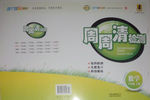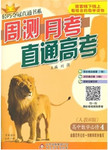ÌâÄ¿ÄÚÈÝ
5£®The human body is designed to move£®But modern lifestyles and office jobs rarely give us the chance to move around£®As we know£¬we're while we're eating£» we sit in the car and we sit while we watch TV£®And many of us sit for many hours at work£®New research shows that sitting less than three hours a day might extend your life by two years£®Peter Katzmarzyk£¬a scientist at the University of Louisiana in the southern United States£¬says that sitting is ubiquitous in our lives£¬meaning it is something we do all the time£¬everywhere£®
However£¬Mr£®Katzmarzyk says that does not mean you can sit for the rest of your waking hours£®He also says you may exercise often£¬"We can't throw away physical activity£®It's extremely important£®We have 60years of research showing us that£®"
Mr£®Katzmarzyk and his colleagues are part of a new generation of researchers studying how sitting all day affects length of life£®"Studies that have assessed the relationship between sitting and mortality£¨ËÀÍöÂÊ£©or television viewing and mortality are very rare£®There's only been a few of them£¬actually five or six now£¬in the last four or five years£®"They found that cutting television time to less than two hours a day could add one-point four years to life£®
Luckily£¬change is already coming to some offices£¬especially in the design of desks£®A"standing desk"lets people stand while they work£®Another new design is called the"treadmill desk£®"A treadmill is an exercise machine that lets you walk in one place£®Even some U£®S£®schools are beginning to experiment with desks that are part bicycle to keep children moving£®That's one of the strategies that many companies are using now£®
Mr£®Katzmarzyk also says studying this problem has inspired his team to make a few changes in their own lives£®
28£®The underlined word"ubiquitous"is closest in meaning toD£®
A£®dangerous
B£®awkward
C£®comfortable
D£®common
29£®Which view agrees with the opinion of Mr£®Katzmarzyk£¿B
A£®Sitting too long may help increase one's life£®
B£®Exercise is important and don't sit too long£®
C£®Watching TV is bad£¬but can broaden one's horizons£®
D£®Stopping watching TV is a necessary but hard task£®
30£®What does Mr£®Katzmarzyk think of his study in Paragraph 4£¿A
A£®It's a relatively new area of study£®
B£®It's a hot subject studied by experts£®
C£®It's a study that begins too late£®
D£®It's not ignored by many experts£®
31£®Why are the desks of all kinds designed for those who sit more£¿C
A£®To give them more comfort£®
B£®To improve their work efficiency£®
C£®To offer them the chance to exercise£®
D£®To seek pleasure while working£®
·ÖÎö ±¾ÎÄÊÇһƪ¿Æ½ÌÀàÔĶÁ£¬ÊôÓÚ¿ÆÆÕÎÄ£®ÎÄÕÂÖ÷Òª½²ÊöÁË×ø×ŵĻµ´¦£¬ÒÔ¼°¸øÁ˶ÁÕßÈçºÎ¼õÉÙ×ø×Åʱ¼äµÄ¼¸µã½¨Ò飬¸æÖª¶ÁÕß×øµÄÔ½ÉÙ»îµÃÔ½¾Ã£¬ÉÙ×ø¿ÉÒÔÑÓ³¤ÎÒÃǵÄÉúÃü£®
½â´ð 28£®D£®´ÊÒå²Â²âÌ⣮¸ù¾Ý»Ïßµ¥´ÊºóµÄÄÚÈÝit is something we do all the time£¬everywhereÖªÎÒÃÇËæʱËæµØ¶¼×ø×Å£¬Òò´ËubiquitousµÄÒâ˼ÊÇ"³£¼ûµÄ"£¬¹Ê×î¼Ñ´ð°¸ÎªD£®
29£®B£®Ï¸½ÚÀí½âÌ⣮¸ù¾ÝµÚÈý¶ÎÖеÄWe can't throw away physical activity£®It's extremely important£®£¨ÎÒÃDz»ÄÜÈÓµôÌåÓý»î¶¯£®Ëü·Ç³£ÖØÒª£®£©ÖªÑ¡ÏîB£¨¶ÍÁ¶ºÜÖØÒª£¬²»Äܳ¤Ê±¼ä×ø×Å£©Òâ˼ÊÇÒ»Öµģ¬¹Ê×î¼Ñ´ð°¸ÎªB£®
30£®A£®ÍÆÀíÅжÏÌ⣮¸ù¾ÝµÚËĶÎÖеÄThere's only been a few of them£¬actually five or six now£¬in the last four or five yearsÖªËûµÄÑо¿ÊÇÏà¶Ô½Ïеģ¬¹Ê×î¼Ñ´ð°¸ÎªA£®
31£®C£®ÍÆÀíÅжÏÌ⣮¸ù¾Ýµ¹ÊýµÚ¶þ¶ÎÖеÄÄÚÈÝ£¬°ì¹«×ÀµÄÉè¼ÆÒѾ·¢Éú±ä»¯ÁË£¬ÆäÄ¿µÄÊÇÒª¾Ã×øµÄÈ˶àÔ˶¯£¬¹Ê×î¼Ñ´ð°¸ÎªC£®
µãÆÀ ¿¼²éѧÉúµÄϸ½ÚÀí½âºÍÍÆÀíÅжÏÄÜÁ¦£®×öϸ½ÚÀí½âÌâʱһ¶¨ÒªÕÒµ½ÎÄÕÂÖеÄԾ䣬ºÍÌâ¸É½øÐбȽϣ¬ÔÙ×ö³öÕýÈ·Ñ¡Ôñ£®ÔÚ×öÍÆÀíÅжÏÌâʱ²»ÒªÒÔ¸öÈ˵ÄÖ÷¹ÛÏëÏó´úÌæÎÄÕµÄÊÂʵ£¬Òª¸ù¾ÝÎÄÕÂÊÂʵ½øÐкϺõÂß¼µÄÍÆÀíÅжϣ®

 Õã½Ð¿γÌÈýάĿ±ê²âÆÀ¿ÎʱÌØѵϵÁдð°¸
Õã½Ð¿γÌÈýάĿ±ê²âÆÀ¿ÎʱÌØѵϵÁдð°¸ ÖÜÖÜÇå¼ì²âϵÁдð°¸
ÖÜÖÜÇå¼ì²âϵÁдð°¸ ÇáÇɶá¹ÚÖܲâÔ¿¼Ö±Í¨¸ß¿¼ÏµÁдð°¸
ÇáÇɶá¹ÚÖܲâÔ¿¼Ö±Í¨¸ß¿¼ÏµÁдð°¸